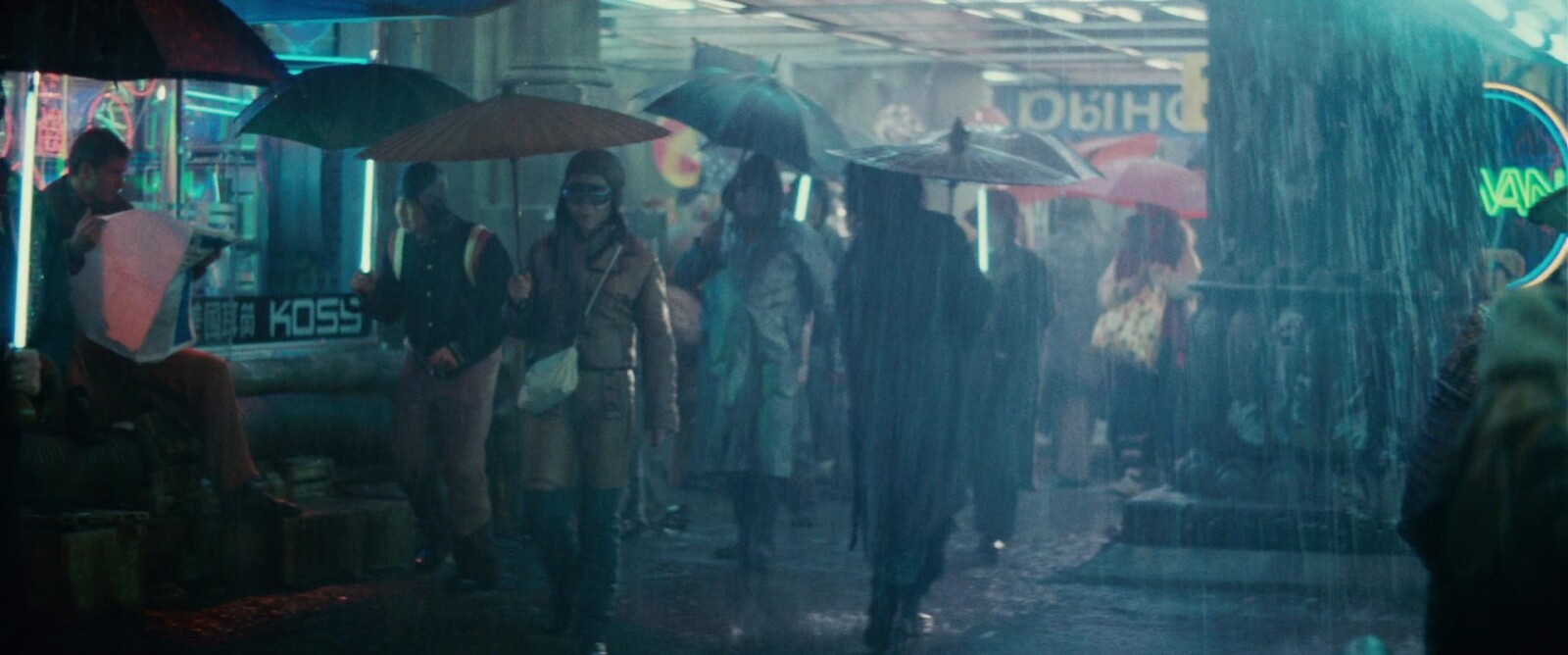In these grim imaginations of our world, it’s either cloudy all the time, or raining — like the entire world suddenly turned into London.

“Blade Runner” / Warner Bros. Pictures
Yes, we get that it’s part of the cinematic language to make your visuals as gloomy and gray as your story, but atrocities like setting kids up to murder each other for rich people’s entertainment and watching countries turn into full-on police states are arguably more hard-hitting when shown on a contrasting, bright and sunshiny day. But maybe that’s just us.
And yes, climate change is causing havoc on our weather systems and leading to more common disasters like flooding, but in a world where some countries have already been on the brink of absolute disaster due to record-breaking droughts that’s only the beginning, running out of water is a bigger and more urgent threat than city folk having to buy new umbrellas every other month.














